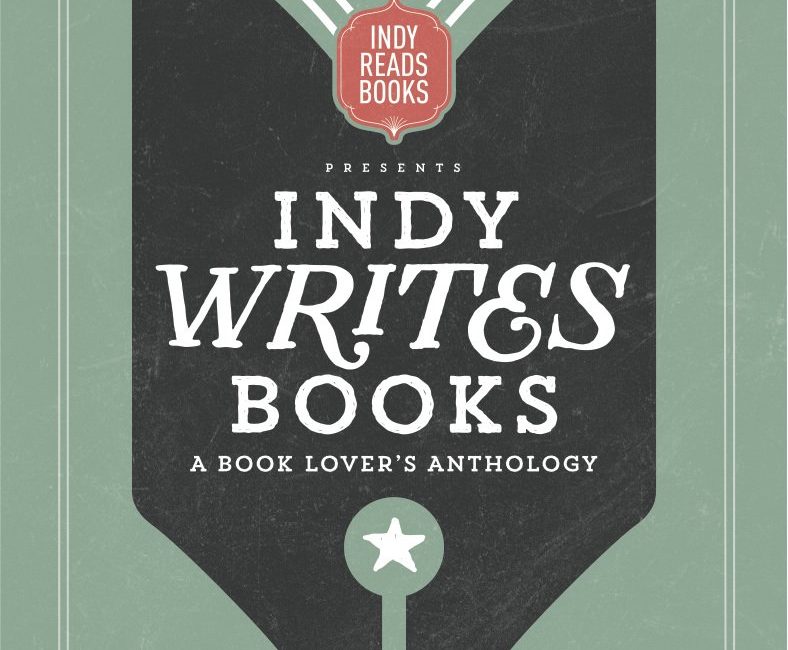
A Review of Indy Writes Books: A Book Lover's Anthology
In the preface to Indy Writes Books: A Book Lover’s Anthology, Indiana author Dan Wakefield quotes from a letter he received from Kurt Vonnegut in 1969 shortly after Slaughterhouse-Five was published: “I went to Indianapolis last week, appeared on a TV show and a radio show, then signed books in the [L.S. Ayres] bookstore. I sold thirteen books in two hours, every one of them to a relative.”
Vonnegut’s first mistake might have been to hawk his books in a department store. (Seriously, L.S. Ayres?) His second: Being in Indianapolis in the first place. Although Indiana has long been a fertile breeding ground for literary talent—Tarkington, Dreiser, Riley—it has never been particularly good at nurturing it once it’s here. But it seems that’s finally changing a bit.
For proof, look to Indy Writes Books: A Book Lover’s Anthology. Published by Indy Reads Books and benefiting the adult-literacy nonprofit Indy Reads, the book features 27 authors, poets, and even puzzle-makers with significant Indiana connections. The publisher nailed the book’s physical appearance—clever visual play on the cover makes it a handsome collection. But is it any good?
Yes—quite good, actually.
YA superstar John Green gets top billing, but it’s the lesser-known names that make it worth the price of admission ($25; all proceeds go to Indy Reads). Don’t get me wrong; Green’s contributions—there are three of them—are predictably breezy and entertaining and wise. But his brief, memoir-like essays were originally written for Chicago public radio years ago. In a book where many of the other entries are consciously Indiana-centric, his essays feel a little out of place.
Of Green’s three pieces, “Uncle Tom” is the best and most poignant. In it, he describes the night he met his future wife, Sarah, while drinking at a party. Looking at her, he fantasizes about a long life together of late-night conversations and cocktails. Then he remembers his late Uncle Tom, a promising writer whose career was derailed by a bad booze habit (a common trait in his family, Green says). He imagines Uncle Tom meeting a young lady under similar circumstances in the 1930s, and running away with her for a glamorous life of conversation and cocktails—until all that was left was Uncle Tom and the cocktails. So Green changes his attitude, gets the girl, and loses his romanticized notion of alcohol and writing.
A more substantial tale of a boy with a disreputable uncle is Michael Dahlie’s “The Pharmacist from Jena.” A work of fiction that originally appeared in Harper’s Magazine, the story is narrated by a young Stockholm transplant living in Winslow, Indiana, in the early 1900s. The boy’s pharmacist uncle is “a passionate lover of cocaine.” He also has a habit of trading drugs for sexual favors. Dahlie’s narrator relates his increasingly unsavory story with an eerie detachment, his flat affect growing especially haunting during the gruesome conclusion. Dahlie may be best known for his humor, but “The Pharmacist from Jena” is more noir than comedy.
Speaking of gruesomeness: Corydon-based novelist and violence junkie Frank Bill contributes two stories: “What Once Was” and “This Bitter Pill.” While both stories are taut and mechanically sound, Bill’s tendency to describe the violent (always violent) action in short, grinding, declarative sentences gets tiresome after awhile.
More fun is Cathy Day’s “Your Book: A Novel in Stories,” a dryly funny second-person account of the emotional roller coaster that accompanies an unnamed person’s journey to becoming a published author. Less fun but no less entertaining is Ben Winters’s “Between The Lines,” an offbeat sci-fi story about a young girl who gets unwittingly transported into a virtual-reality version of A Clockwork Orange. It’s not as gripping as the pre-apocalyptic detective trilogy (The Last Policeman) that has earned Winters so much acclaim recently, but it’s still witty, warm, and deftly written. Finally, Lou Harry’s play “Imagine Being Joyce Carol Oates’ Aunt, for Just a Minute” deserves mention for its terrific title alone. It’s a little one-act that would wear out its welcome if it stayed much longer. But as it is, it’s one of the more amusing entries in the book.
All told, Indy Writes Books acquits the state of Hoosier literature well. And though none of its authors can yet claim a place on Indiana’s Mount Rushmore of writers (that’s still the exclusive domain of Vonnegut, Dreiser, Tarkington, and Riley), there are at least a couple here who are making discernible progress up that craggy, too-often-thankless mountain.
For more information on tonight’s event, visit the party’s Facebook page.





